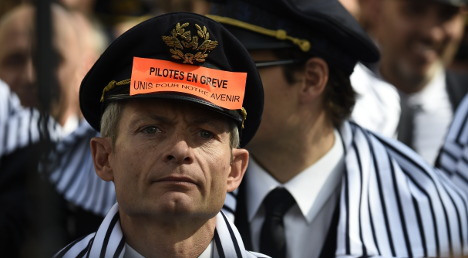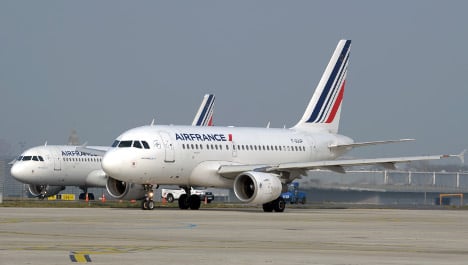The national carrier’s board met on Thursday night and gave the green light to management to implement an “alternative restructuring plan” following the failure of negotiations.
In a bid to be able to compete with its global rivals Air France had asked its pilots to fly more hours for the same pay. The request was turned down by pilots who see it as a pay cut.
“This plan, including a reduction of activity by Air France in 2016 and 2017, in order to guarantee the economic objectives and the company's future, will be presented Monday” to the company's central enterprise committee, the airline management's statement said.
On Wednesday, management had revealed that negotiations with the union representing Air France-KLM pilots on its initial restructuring plan had failed, opening the way to establishing a “Plan B”, which is expected to include a 10 percent reduction of long-haul flights and a delay in its orders for Boeing 787s and most significantly massive job cuts.
Unions have forecast that between 3,000 and 8,000 jobs could go.
“Faced with the impossibility of signing accords that would allow Air France to put in place measures leading to a return to lasting profitability, the administrators consider it indispensable to have an alternative plan,” the statement said.
Air France-KLM is looking to boost its competitive edge against its main European rivals, Lufthansa and British Airways-Iberia.
Air France’s management claims their pilots cost 25% more than those of European competitors,
The threat of job cuts raises the prospect of more crippling pilot strikes, the like of which in September 2014 cost the company €500 million in lost sales.




 Please whitelist us to continue reading.
Please whitelist us to continue reading.
Member comments